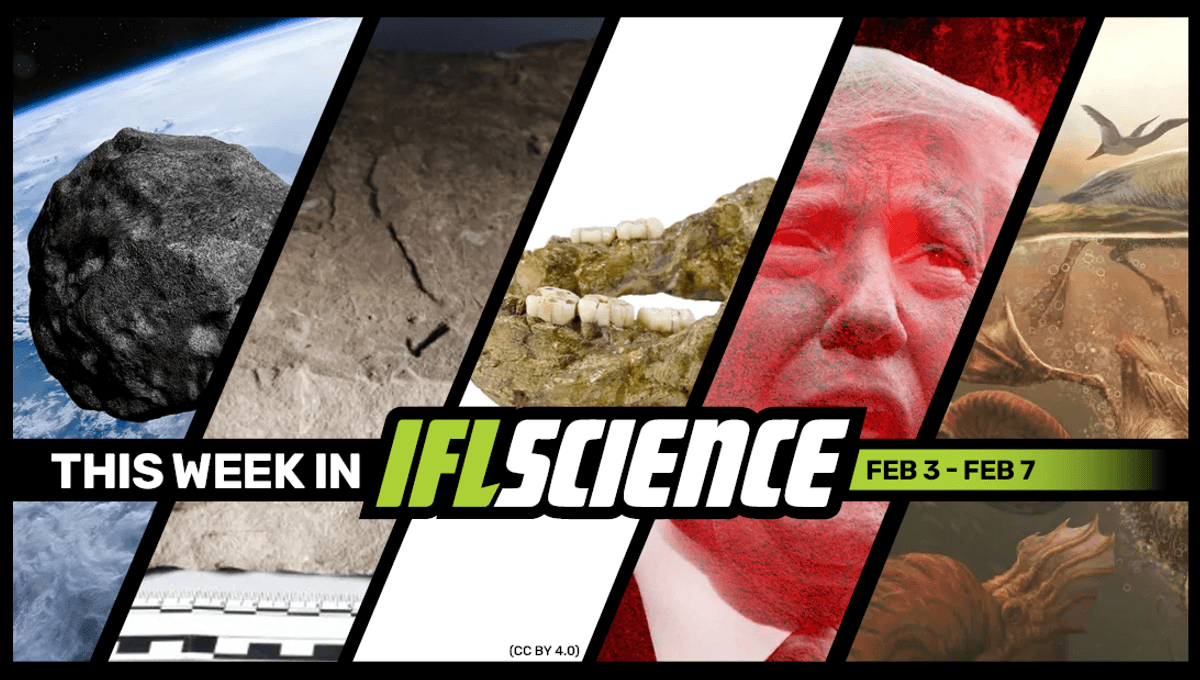
This week, the earliest runestone ever to be reliably dated may have been carved by a woman, a “gorilla-like” human relative that lived some 1.4 million years ago has been revealed by a jawbone, and an Antarctic fossil dating back 68 million years proves the existence of dinosaur-era ducks. Finally, as conversations around ownership of bodies and autonomy grow, we ask: do we actually own our bodies?
Create an IFLScience account to get all the biggest science news delivered straight to your inbox every Wednesday and Saturday.
Chances Of Asteroid 2024 YR4 Hitting Earth In 2032 Just Climbed To 2.3 Percent
ADVERTISEMENT GO AD FREE
The threat of Asteroid 2024 YR4 has not gone away just yet. The near-Earth object was discovered in December and calculations of its orbit showed something concerning: there was a remote possibility that it was going to hit our planet. This placed 2024 YR4 at Level 3 on the Torino impact scale with a 1.2 percent chance of impact on December 22, 2032. Now, the chance of impact has just got higher. Read the full story here
World’s Oldest Runestone May Have Been Carved By A Woman
The earliest runestone ever to be reliably dated has been discovered at a grave field in Norway, providing some fascinating insights into the origins of runic writing. Engraved some time between 50 BCE and 275 CE, the ancient stone was eventually broken apart and scattered across multiple burials, while some of the inscriptions suggest that the runes may have been authored by a woman. Read the full story here
This 1.4 Million-Year-Old Jawbone May Reveal A New “Gorilla-Like” Human Relative
The hominin family tree may have a new twig: Paranthropus capensis, a previously unknown “gorilla-like” human relative that lived in southern Africa some 1.4 million years ago. A new study focuses on a hominin jawbone known as SK 15 that was unearthed in 1949 at Swartkrans, a cave in modern-day South Africa that holds a rich trove of prehistoric hominin fossils, including those of early Homo species. Read the full story here
US Science Is Under Attack
We are three weeks into Trump’s second presidency, and scientific research in the United States is in complete disarray. A series of executive orders that have been described as illegal, violating the constitution, and segregationist have sown chaos in the many scientific funding agencies across the US. Read the full story here
68 Million-Year-Old Antarctic Fossil Proves Existence Of Dinosaur-Era Ducks
A Cretaceous-era skull found on Vega Island, Antarctica, has been confirmed as a member of the same order as ducks and geese, making it one of the oldest known examples of a modern bird. Dating from not very long before the asteroid hit, the species Vegavis iaai, or a near relative, is a strong candidate for one of the few survivors of the last mass extinction. Read the full story here
TWIS is published weekly on our Linkedin page, join us there for even more content.
Feature of the week:
Do We Actually Own Our Bodies?
Should we be allowed to charge for sex? Do we have a right to sell our organs? And is our DNA our own property? The level of autonomy we ought to have over our flesh and bones is far from clear-cut, and as innovations in biotechnology continue to transform our moral and economic relationships with our biological material, the bigger question that emerges is: do we actually own our bodies? Read the full story here
More content:
Have you seen our e-magazine, CURIOUS? Issue 31 February 2025 is available now. This month we asked, “The Science Of Fever Dreams” – check it out for exclusive interviews, book excerpts, long reads, and more.
PLUS, the We Have Questions podcast – an audio version of our coveted CURIOUS e-magazine column – continues. In episode 5, we ask “How Do You Begin Searching For Alien Life?”
Season 4 of IFLScience’s The Big Questions podcast has concluded. To revisit all of season four’s episodes, click here.
Source Link: 2.3 Percent Chance An Asteroid May Hit Earth In 2032, US Science Is Under Attack, And Much More This Week